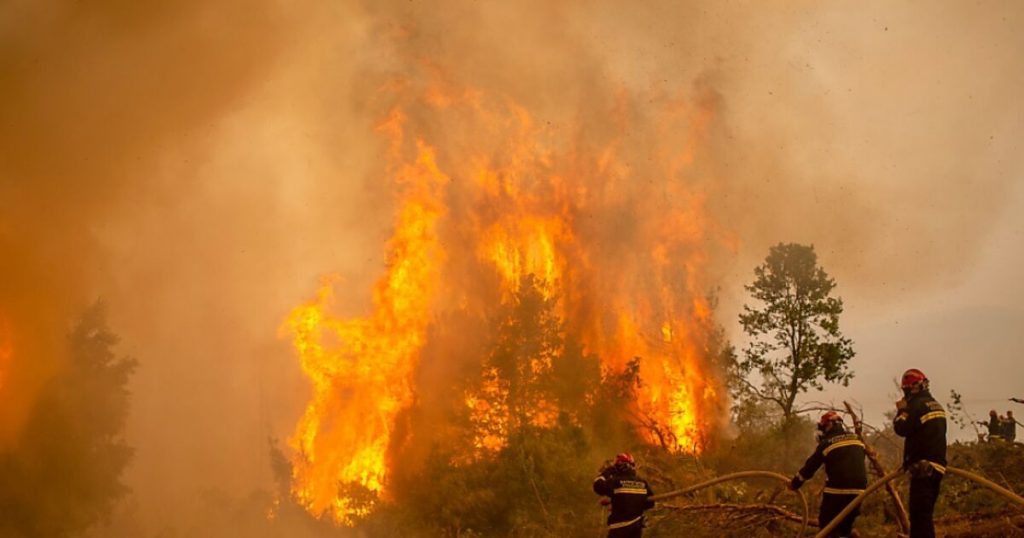While fires are still burning in many places, there are preliminary investigations into the extent of the damage in Greece. The Geological Institute of the University of Athens currently estimates 90,000 hectares of plowed land throughout the country. In Turkey, the situation calmed down after two weeks. According to official information, a fire was not brought under control in southwestern Turkey’s Mugla Province on Tuesday. There, the heat and strong winds made the extinguishing work even more difficult.
More than 200 fires have broken out in Turkey since the end of July, affecting about half of the 81 provinces. The fire caused particularly great devastation in the coastal provinces of Antalya and Mugla.
According to the local authorities, more than 66,000 hectares of land have been burned in Mugla alone. It is estimated that a total of about 150,000 hectares of land (1,500 km²) have been destroyed – an area nearly three times the size of Lake Constance. The cause of the fire is being further investigated.
In Greece, too, the damage is enormous. “The data is constantly changing because events are still going on,” Niki Evilpidou, professor of geology and geology at the University of Athens, told the Kathimerini daily on Tuesday. Even after the fires were extinguished, the danger had not yet been averted. Often “this is followed by floods, mudslides and landslides, which can be disastrous when heavy rains come, which has often happened in recent years.”
According to scientists, the largest area was burned to date on the island of Evia, where the fires were not extinguished: about 51,000 hectares of forest are already in the ash. The Peloponnese was also badly damaged, with 10,000 hectares said to have been burned in the ancient region of Olympia.
Everything else is under control in Evia: Large bushfires continue to burn uncontrollably, although firefighters, residents and volunteers managed to shield several places from the flames on Tuesday night. Greek media reported that the forests and farmland surrounding the villages were burnt.
Gradually, there is hope that the situation will improve on the second largest Greek island. On the other hand, so many were burned that the fire went out on its own in some places because the flame could no longer find any food. On the other hand, most other fires in the country are now under control and emergency services can focus on Evia. Another positive factor is that there were no strong winds in the area on Tuesday that could exacerbate the flames.
The government in Athens on Tuesday afternoon wants to announce the first measures to rebuild burned homes and help the affected citizens. On Monday evening, the prime minister promised to implement the aid quickly and unbureaucraticly.

“Food practitioner. Bacon guru. Infuriatingly humble zombie enthusiast. Total student.”








More Stories
Kyiv: Russian Kursk offensive halted
US Presidential Election: Former US Government Officials Warn Against Donald Trump's Election
Netherlands wants to leave asylum system